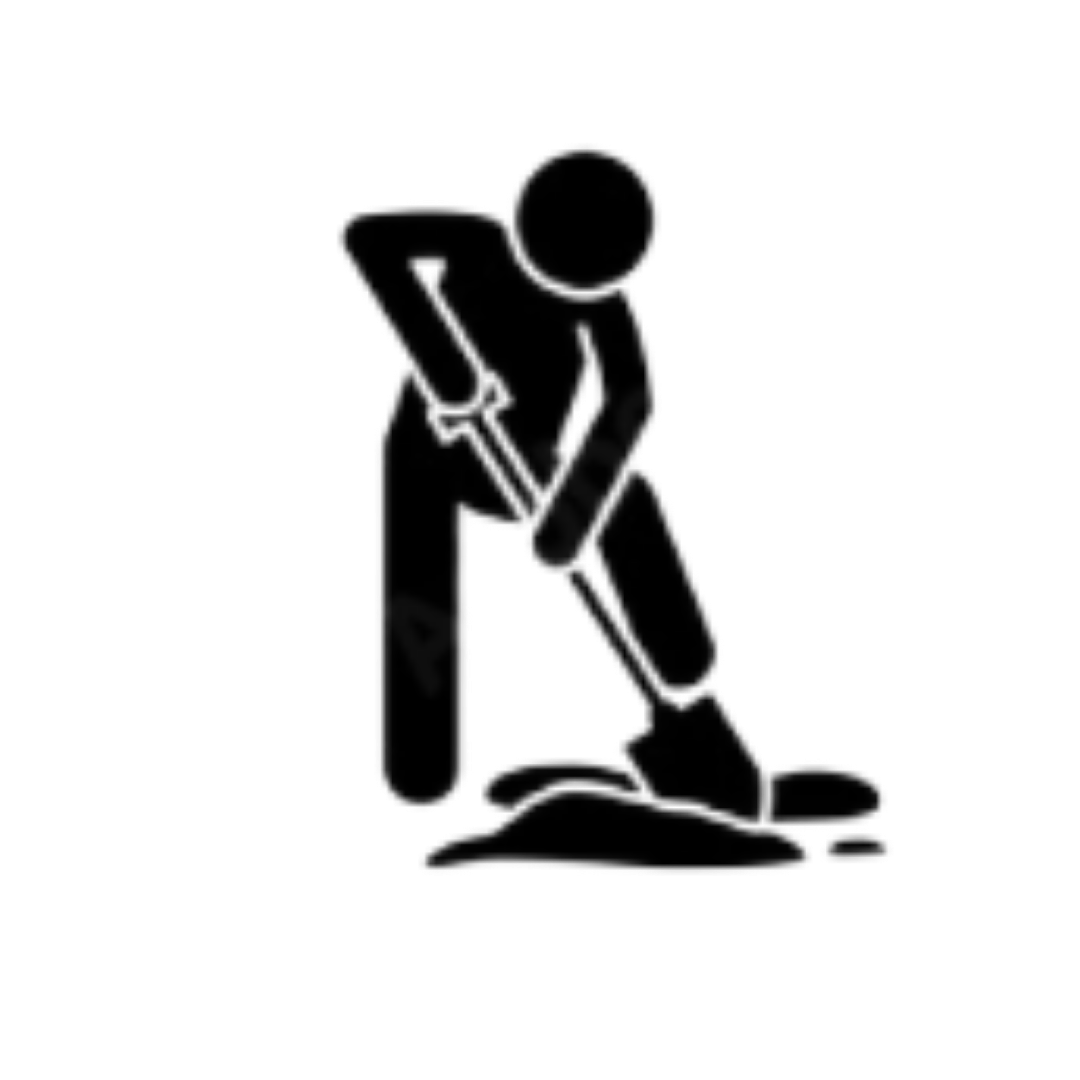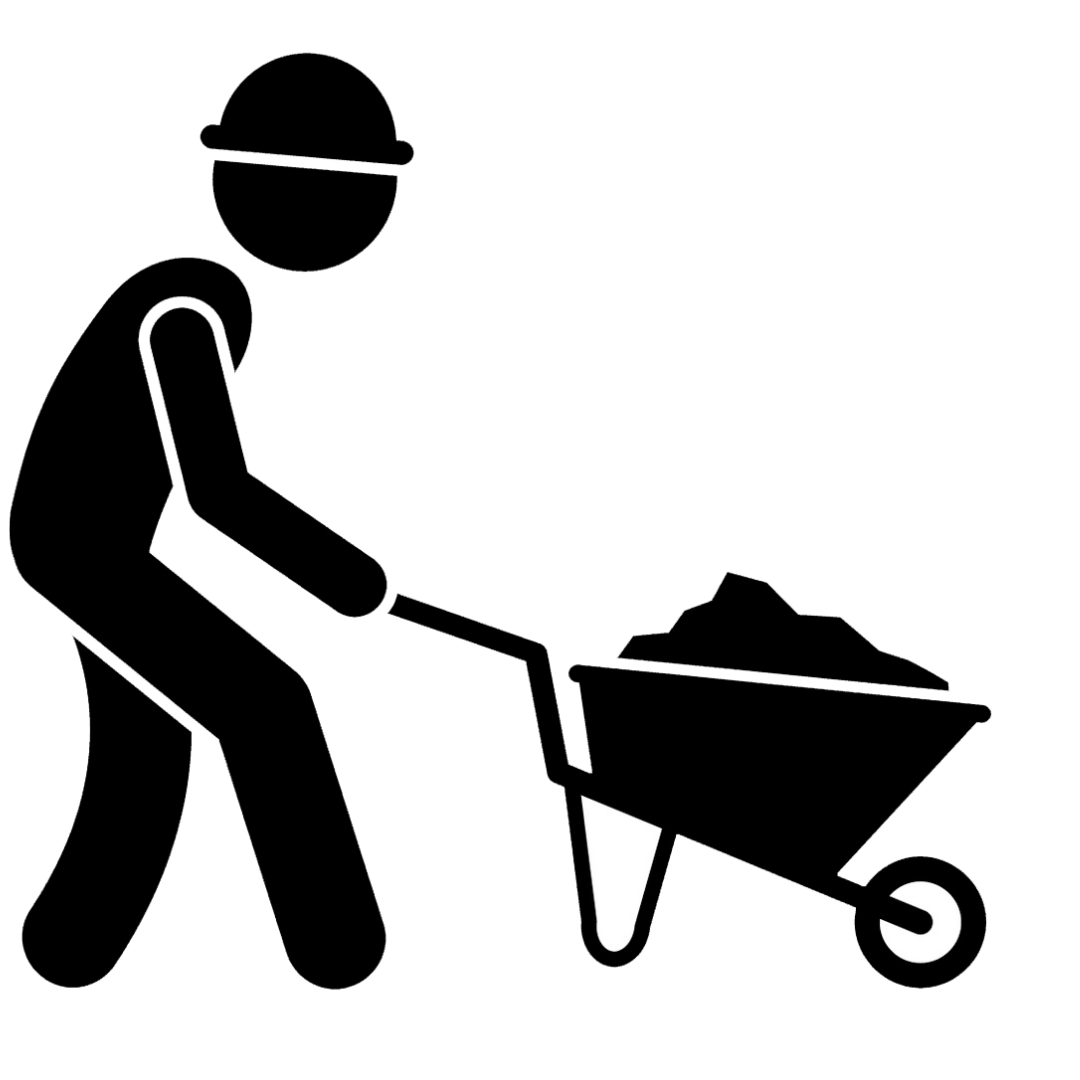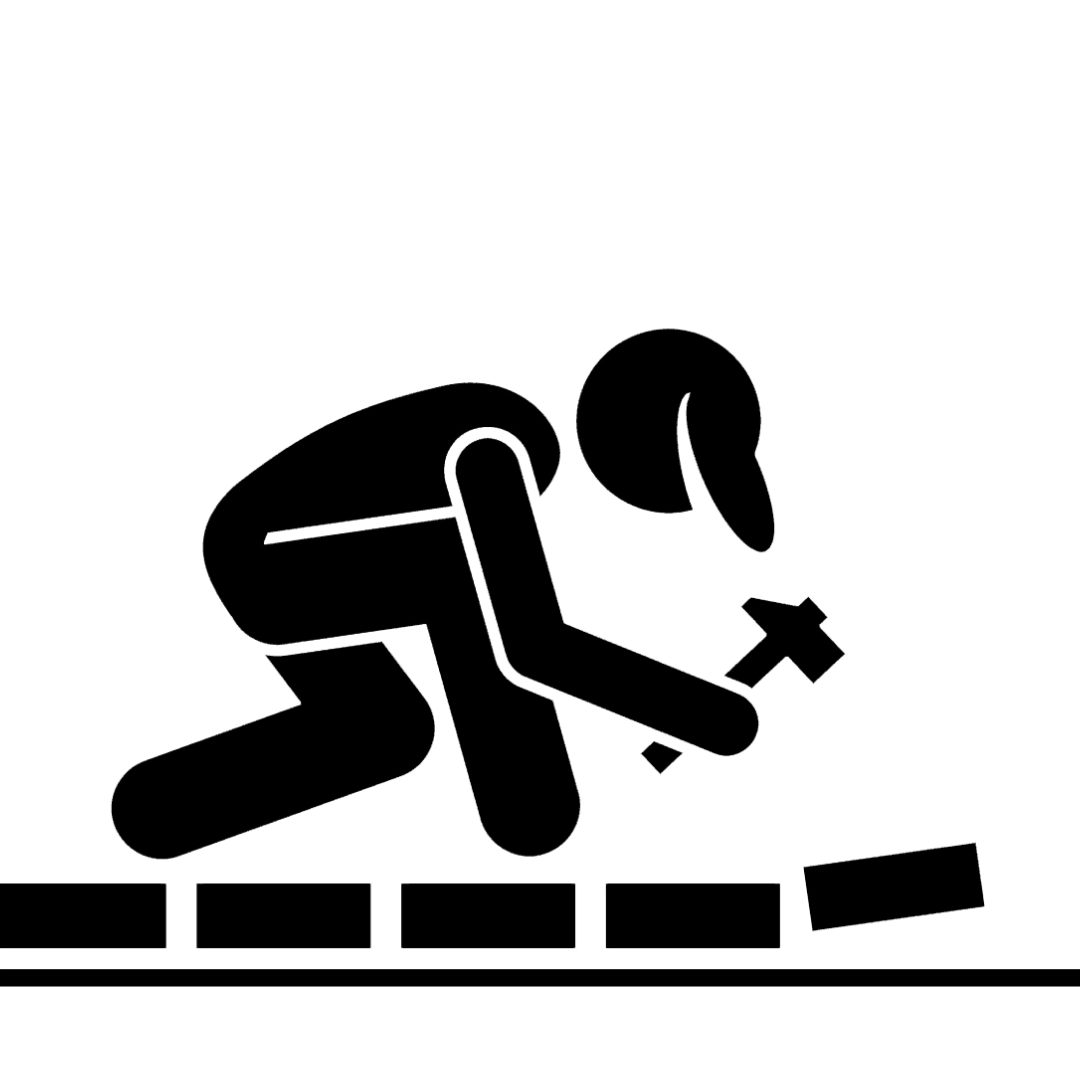Burial Services Booking Form
NCFC have created a new booking form designed to simplify and standardise the process of scheduling, and keeping track of our services and your bookings.

WELCOME TO NEIL CURTIS & SONS FUNERAL CONTRACTORS LIMITED
NCFC is dedicated to the practice and expertise in burial services that include gravedigging, exhumations, cemetery management and maintenance services such as soil removal, site clearance, landscaping as well as burial relocation’s. We also provide masonry and stone works such as vault building, repair, and renovations.
We work with councils, cemeteries and private clients to ensure that graveyards are well maintained and the identification of new burial plots within existing grave-sites is easy. Our comprehensive grounds maintenance services include grave digging, relocating graves, stone works, and maintenance of cemeteries and churchyards.
We operate to extremely high internal standards and make every effort to ensure that our work is conducted in a respectful, careful and courteous manner.

About Us
About Us
"Neil Curtis & Sons Funeral Contractors Limited also known as NCFC Grave Digging or simply NCFC, is an independent family-owned company, established in 1981, with offices in Wokingham , Berkshire. NCFC has grown to become the premier provider of funeral contractor services in the Greater London and Home Counties areas." - Neil Curtis, Founder and CEO .
Today we employ 21 staff, and provide gravedigging, cemetery management and care services to fulfil the demands of Funeral Directors, Undertakers, Churches, Cemeteries and Private Clients.

Frequently Asked Questions:
Is a Banksman Required for Grave Digging on Church of England Owned Land?
In the context of grave digging operations, particularly when it involves heavy machinery such as excavators, the presence of a banksman is not just a procedural formality but a critical safety measure. Known also as a spotter or signal person, the banksman plays a pivotal role in guiding machine operators through safe maneuvers and alerting them to hidden hazards. This role becomes increasingly significant in environments like churchyards, where space constraints and public safety are paramount.
While the specific need for a banksman in Church of England owned churchyards may not be detailed in general burial guidance documents, the overarching theme of health and safety cannot be overstated. In the absence of a banksman, the risk of accidents, including equipment mishandling or unintended damage to churchyard property and nearby graves, increases significantly. This oversight not only poses immediate physical risks but can also lead to longer-term implications, such as liability issues and potential harm to the reputation of those responsible for maintaining the churchyard.
Determining the necessity of a banksman typically hinges on a thorough risk assessment of the specific site and the nature of the digging activity. In scenarios involving the operation of heavy machinery in confined or populated churchyards, a banksman is strongly recommended to mitigate safety risks. Their expertise in effectively communicating with operators to navigate tight spaces and avoid unseen hazards is invaluable for maintaining a safe working environment.
Adhering to the principles of safety as advocated by the Church of England involves more than compliance with regulations; it reflects a commitment to the well-being of all involved, from workers to churchyard visitors. We encourage consultation with churchyard administrators or local authorities to understand specific safety requirements or local regulations that may apply to your situation.
In summary, while employing a banksman for grave digging in a Church of England churchyard might not be explicitly mandated, it is a prudent practice that significantly enhances safety and minimizes the risk of accidents. By prioritizing this aspect of health and safety, you contribute to a respectful, secure, and professionally managed burial environment.
What Are the Qualification Requirements for Grave Diggers Employed by Parish Councils?
As a parish council responsible for grave digging operations, it's crucial to consider both legal requirements and best practices for health and safety. The decision to use a qualified versus an unqualified person for grave digging should be guided by these considerations:
Legal Requirements and Regulations: According to the Health and Safety at Work Act 1974, employers (including parish councils) have a duty to ensure the safety of their employees and others who may be affected by their work activities. This includes providing adequate training, equipment, and supervision.
Qualifications and Training: While specific qualifications for grave digging aren't always mandatory, having adequately trained personnel is essential. This training should cover not just the physical act of digging graves but also understanding the risks associated with it, such as potential collapses, handling of heavy equipment, and awareness of underground utilities.
Risk Assessment: Conducting a thorough risk assessment is a key part of ensuring safety. The assessment should determine the level of skill and knowledge required for the task. If the risk assessment indicates that the task is complex or high-risk (for instance, if heavy machinery is involved or if the grave is in a challenging location), it would be prudent to use a qualified individual.
Industry Standards and Best Practices: Standards set by relevant industry bodies and associations, like the Institute of Cemetery and Crematorium Management (ICCM), often recommend best practices for grave digging, including the use of trained or qualified personnel.
Insurance and Liability: Employing unqualified personnel may have implications for your insurance and liability. Should an accident occur, the parish council might be held liable, especially if it's found that the personnel were not adequately trained or qualified for the task.
Moral and Ethical Considerations: Beyond legal requirements, there's a moral obligation to ensure that such sensitive work is carried out respectfully and safely, not just for the workers but also for the bereaved families and the general public.
Given these factors, it's generally advisable for a parish council to use individuals who are adequately trained and, where necessary, qualified for grave digging. This helps ensure compliance with health and safety regulations, reduces the risk of accidents, and upholds the standards of care and respect required in a burial context. If you're unsure about the specific requirements or best practices, consulting with a professional body or seeking legal advice would be beneficial.
What Legal Guidelines Govern Burials on Private Land in the UK?
Burials on private land, such as in a private garden or on privately owned land, are subject to various rules and regulations in the UK. It's important to note that while such burials are legal, they must adhere to specific guidelines to ensure legal compliance and respect for public health, safety, and environmental considerations. Here are the key rules and regulations:
Obtaining Permission: The landowner must give their permission for the burial. If you are not the landowner, you need to get written consent from them.
Certificate for Burial or Cremation: Before any burial can take place, a Certificate for Burial (also known as the 'green form') must be obtained. This is usually given upon registration of the death. If the death is referred to a coroner and there is to be an inquest, a Coroner’s Order for Burial (Form 101) will be required.
Environmental Health Regulations: It's important to ensure that the burial will not contaminate any water sources (such as wells, springs, or reservoirs) and is a suitable distance from any watercourse. Environmental Health Officers from the local council can provide guidance on this.
Depth of the Grave: The grave must be of sufficient depth – generally, at least 3 feet (1 meter) of soil above the top of the coffin is recommended.
Registering the Burial Ground: While there's no legal requirement to register the land as a burial ground, it's important to record the burial in the property’s deeds. This information is crucial for future property sales and for maintaining a record of the burial site.
Planning Permission: Typically, planning permission is not required for a single burial, but if you intend to create a burial ground with multiple graves, you might need planning permission.
Exhumation: If, for any reason, the body needs to be exhumed in the future, an exhumation license is required from the Ministry of Justice.
Respect for the Deceased and Public Sensitivity: Burials should be conducted respectfully, considering public sensitivity and the impact on the local community.
Restrictions in the Deeds of the Property: Check the property’s deeds for any covenants or restrictions that might prohibit burials.
Future Sale of the Property: Having a burial site on the property can affect its value and future saleability. Prospective buyers must be informed of the burial site.
Local Council Notifications: While not a legal requirement, it's advisable to inform the local council of your intent to ensure all local regulations are met.
Remember, these regulations can vary slightly depending on local council policies, so it's always best to consult with your local authority for specific guidance related to burials on private land in your area.
Can I Legally Bury My Mum in My Garden in the UK?
Yes, you can bury a family member, such as your mother, in your garden in the UK, provided you adhere to the relevant legal requirements and guidelines. However, there are several important considerations to keep in mind:
Land Ownership: You must be the legal owner of the property where the burial will take place. If you are not the sole owner, you need consent from all co-owners.
Certificate for Burial or Cremation: You must obtain a Certificate for Burial (the 'green form') from the registry office when registering the death, or, in cases referred to a coroner, a Coroner's Order for Burial.
Environmental Health Considerations: The burial must not pose any risk to public health. This typically means ensuring the grave is not near water sources (like wells or reservoirs) to prevent contamination, and is deep enough—usually at least 3 feet of soil above the coffin.
Planning Permission: Generally, for a single burial, planning permission is not needed. However, if the land’s use is changing significantly (e.g., from a garden to a cemetery), planning permission may be required.
Recording the Burial: It's important to document the burial in the property's deeds. This is crucial for future property sales and maintaining a record of the burial site.
Future Property Sale: Be aware that having a burial site on your property can affect its future saleability. Prospective buyers must be informed about the grave.
Informing Local Authorities: While not legally required, it's advisable to inform the local council of your plans for a home burial to ensure compliance with all local regulations and guidelines.
Long-term Considerations: Consider the permanence of the burial site. If the property is sold, you may not have control over future access to the grave.
Respect and Sensitivity: Conduct the burial in a manner respectful to the deceased and considerate of neighbors and local community sensitivities.
Exhumation: If the body needs to be exhumed in the future, an exhumation license will be required.
It's always recommended to consult with local authorities, such as the Environmental Health Department of your local council, to ensure you are complying with all relevant regulations and to seek advice tailored to your specific situation.
What Is the Maximum Number of Burials Allowed on Private Land Before Requiring a Cemetery License in the UK?
In the United Kingdom, there isn't a specific number of burials on private land that automatically necessitates a cemetery license. However, if you are planning multiple burials, there are several important factors to consider:
Planning Permission and Change of Land Use: While a single burial or a small number of burials might not require planning permission, if the land begins to be used as a cemetery (i.e., if there are a significant number of burials), this could constitute a change of land use. In such cases, you would need to apply for planning permission from your local authority.
Environmental Health Regulations: Regardless of the number of burials, it's essential to ensure that they do not pose any environmental health risks, especially regarding water contamination. Local Environmental Health Officers can provide guidance on this.
Property Deeds and Local Restrictions: Check your property deeds for any restrictions that might limit the number of burials and consult with local authorities to understand any local regulations or bylaws that might apply.
Record Keeping: It's important to keep detailed records of all burials, including their exact locations. These records should ideally be attached to the property deeds.
Long-Term Maintenance and Access: Consider how the burial site will be maintained in the long term and whether public access might be required in the future.
Future Property Sale: Multiple burials on a property might affect its value and saleability. Prospective buyers must be informed of the burial site(s).
Consultation with Local Authorities: As the number of burials increases, it's advisable to maintain open communication with your local council to ensure ongoing compliance with any emerging regulations or requirements.
Community Sensitivities: If your private land starts to take on the characteristics of a small cemetery, be mindful of how this might be perceived by your local community.
In summary, while there isn't a set number of burials after which a cemetery license is required, the key is whether the land's use is effectively changing to that of a cemetery. This is a matter for local planning authorities, and requirements can vary. If you're considering multiple burials on private land, it's prudent to seek legal advice and consult with your local planning authority to understand the implications fully.
Need to ask us a question?
Click on the chat widget on the bottom right of the screen to send us a text and we will get right back to you.
Click on the chat widget on the bottom right of the screen to send us a text and we will get right back to you.
Our Services
Services
Gallery

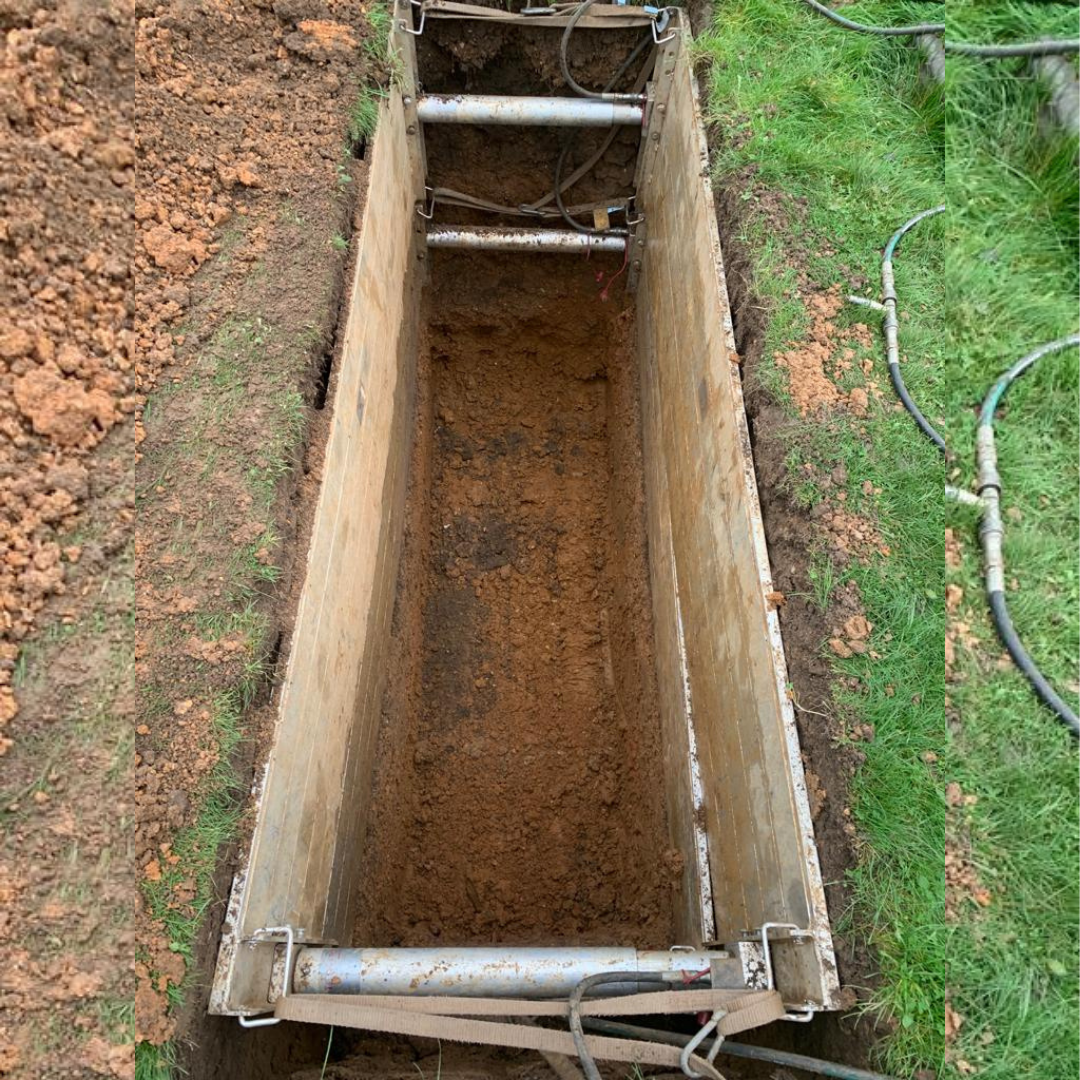
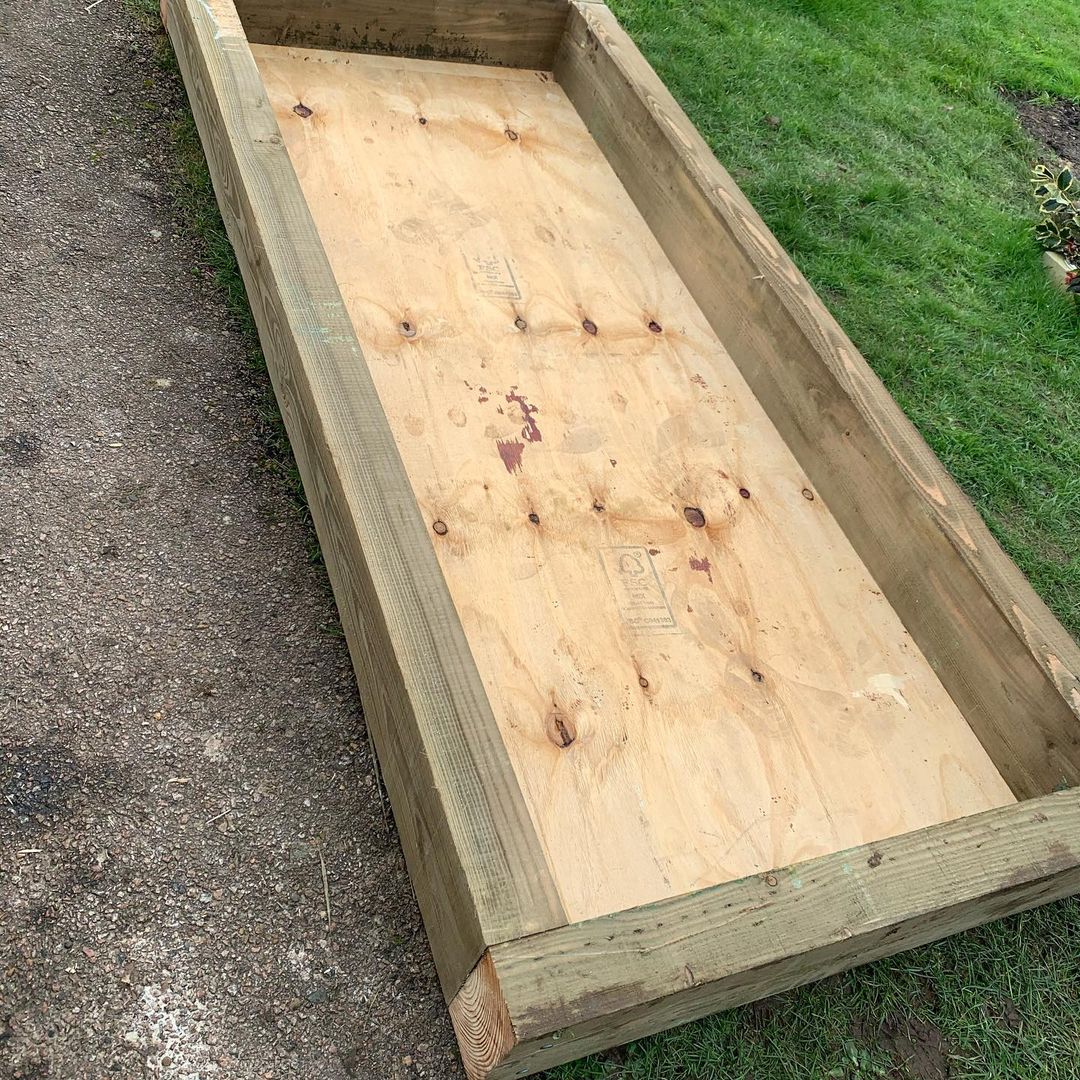
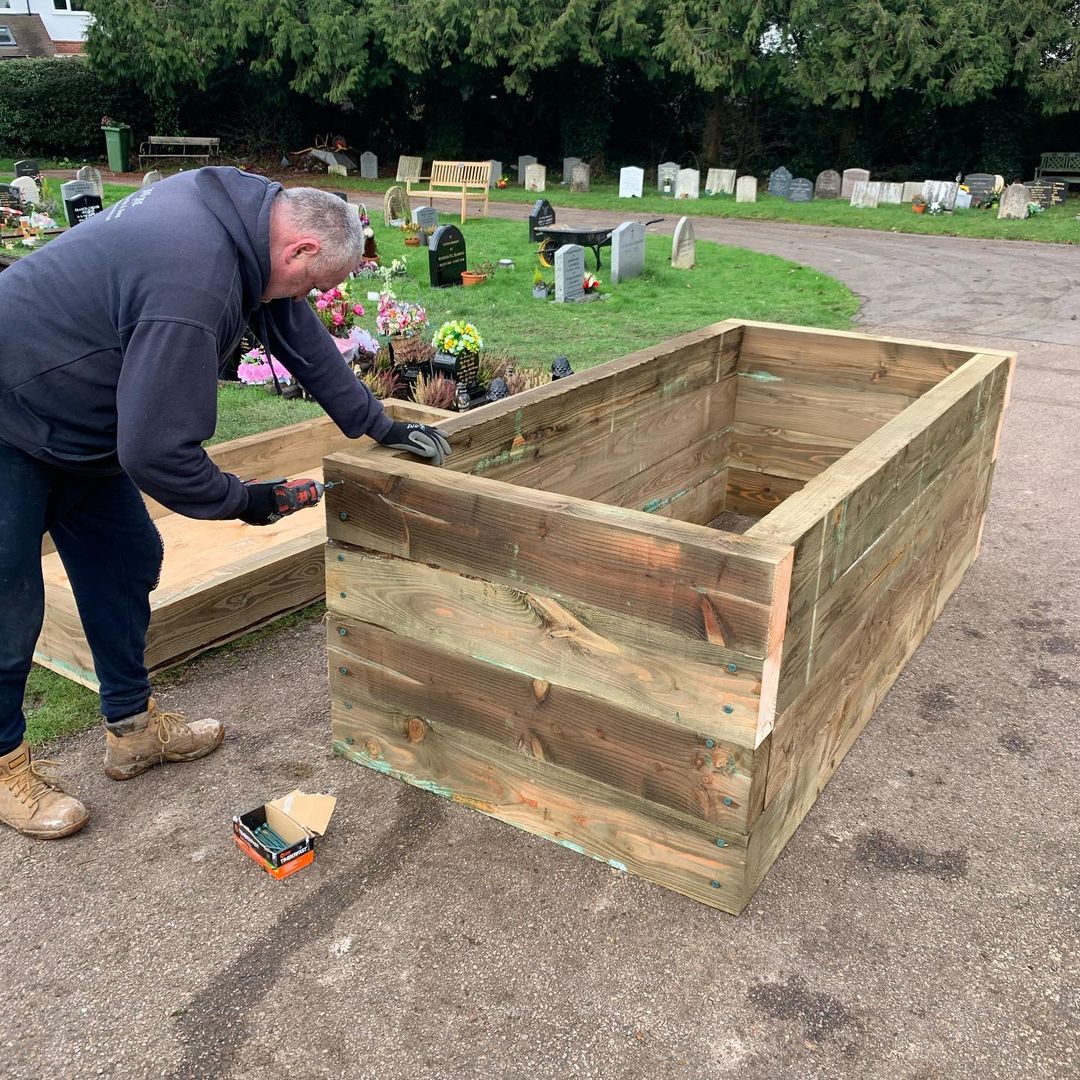
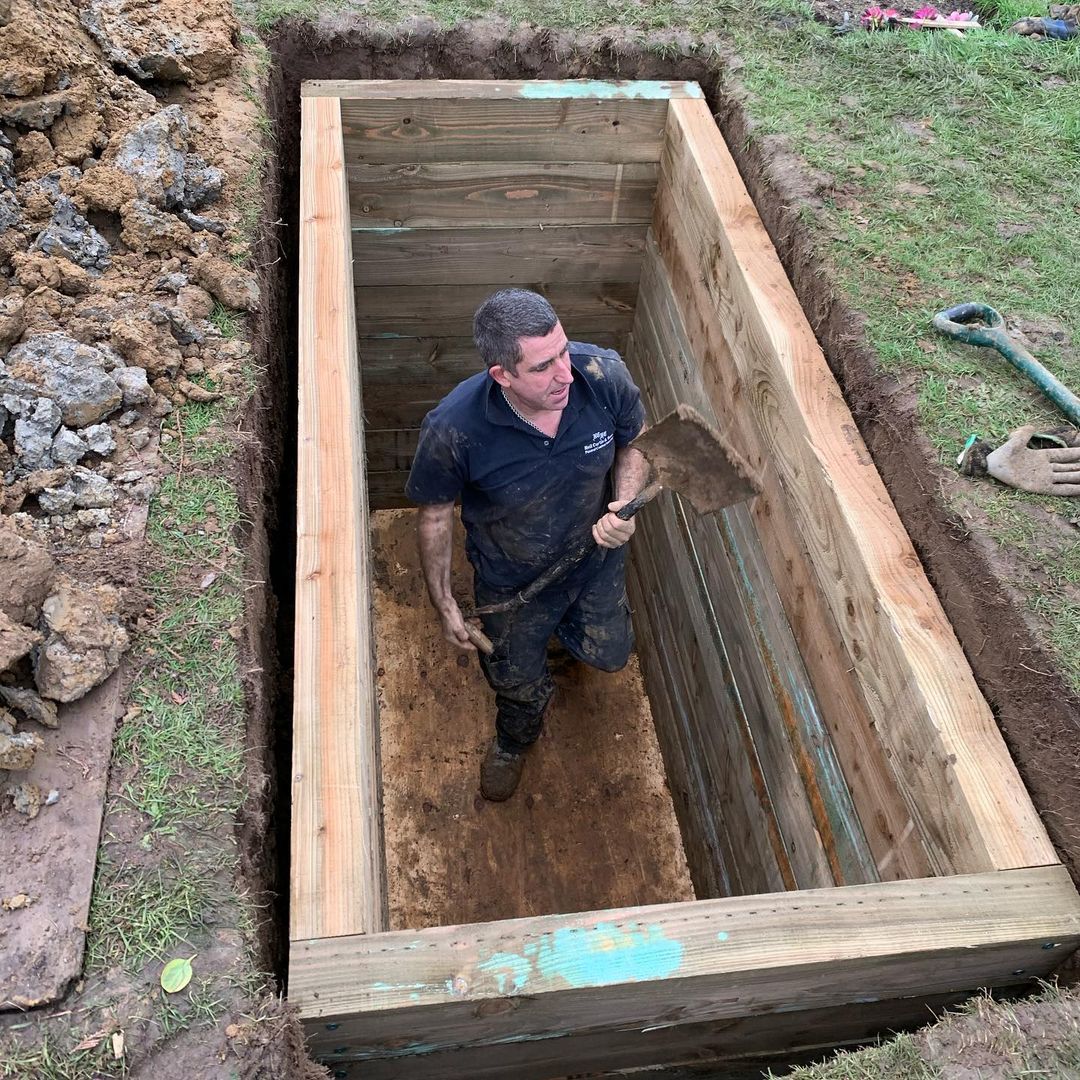
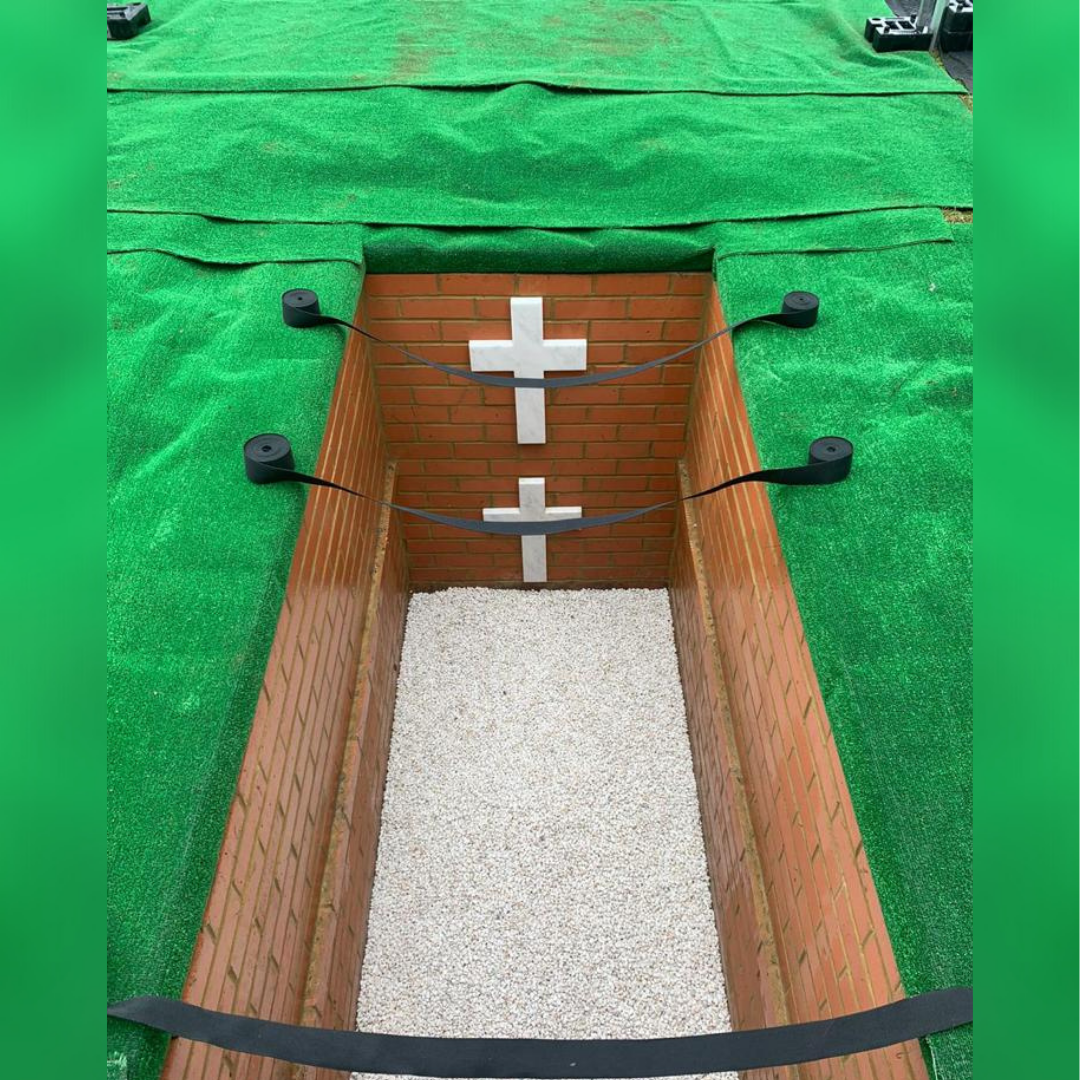
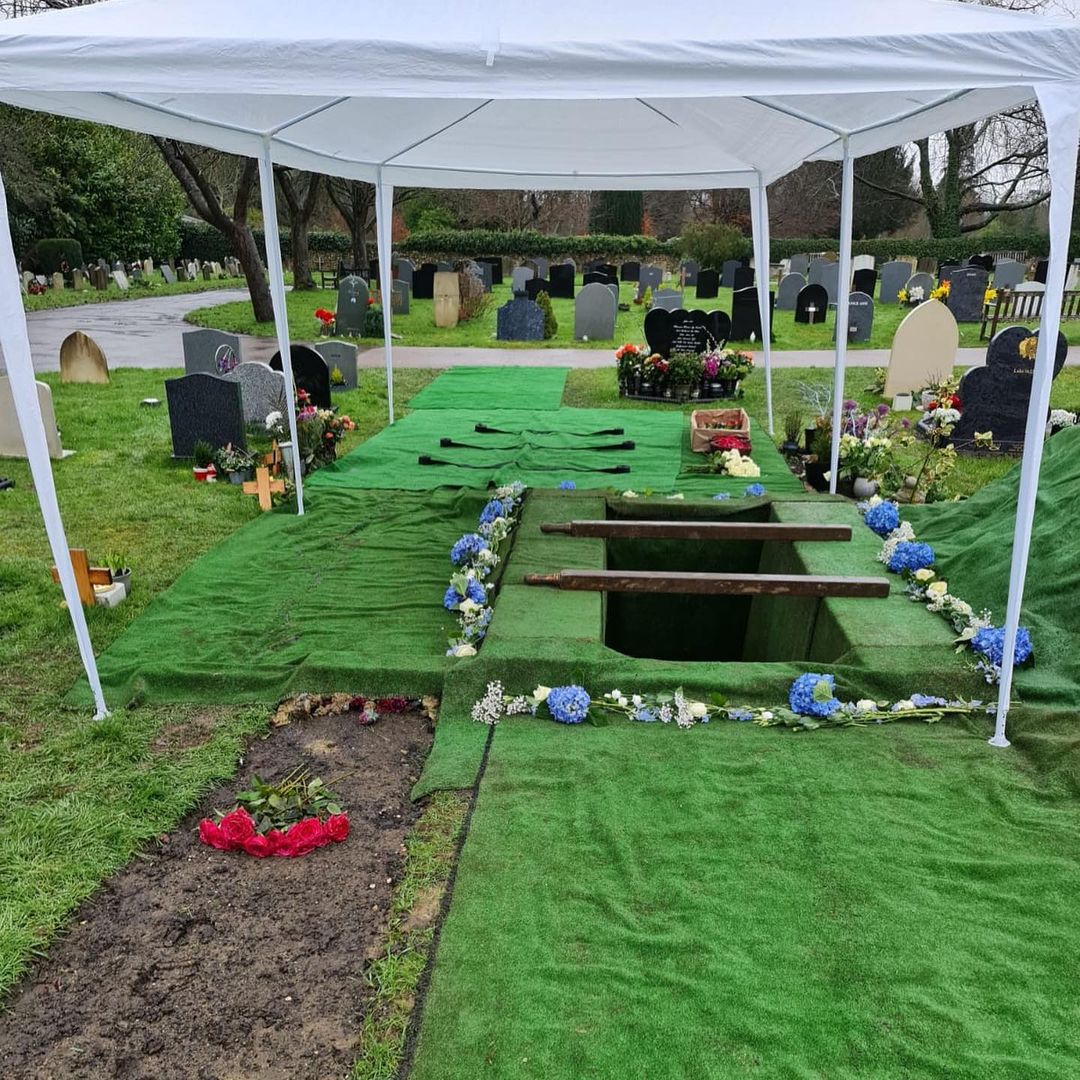
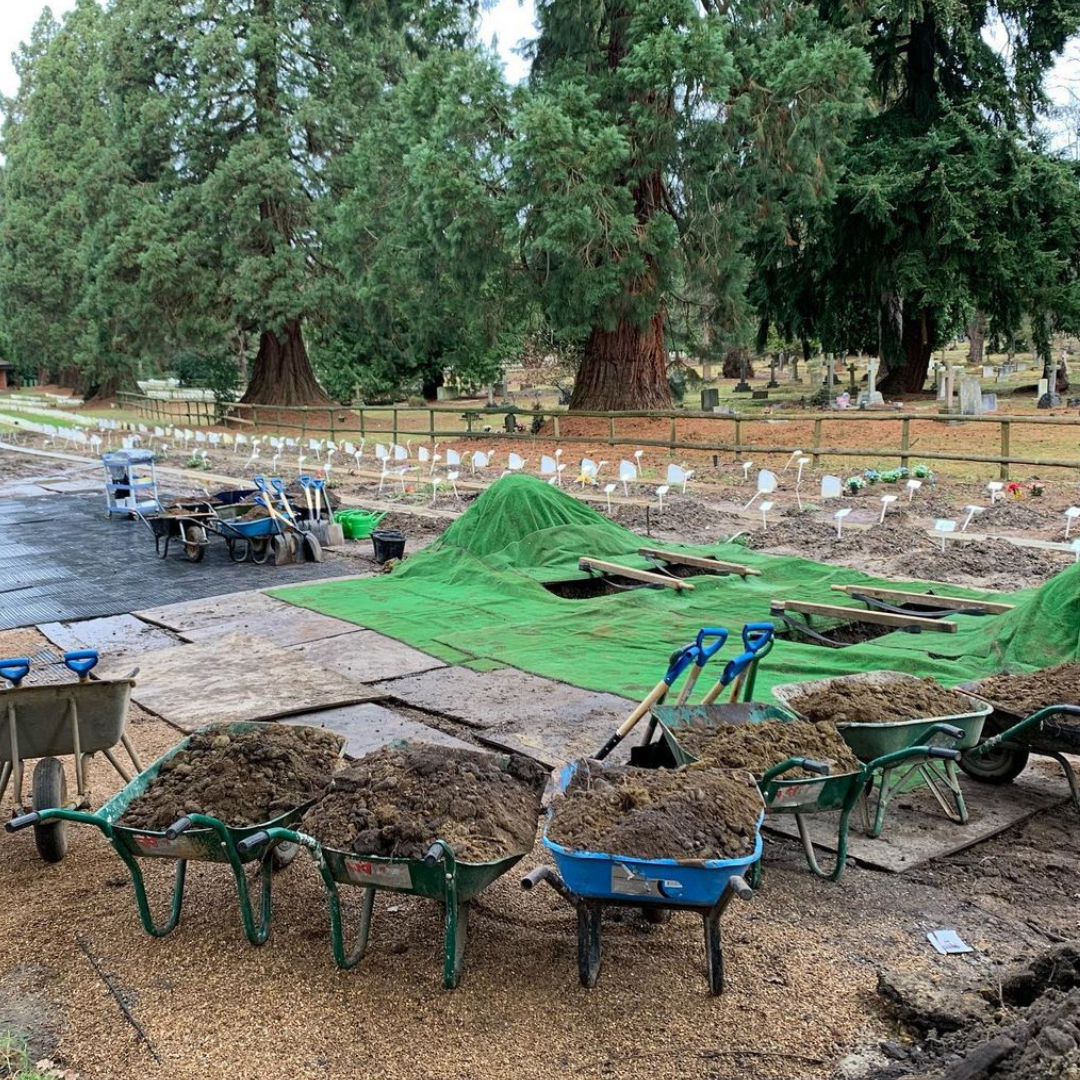
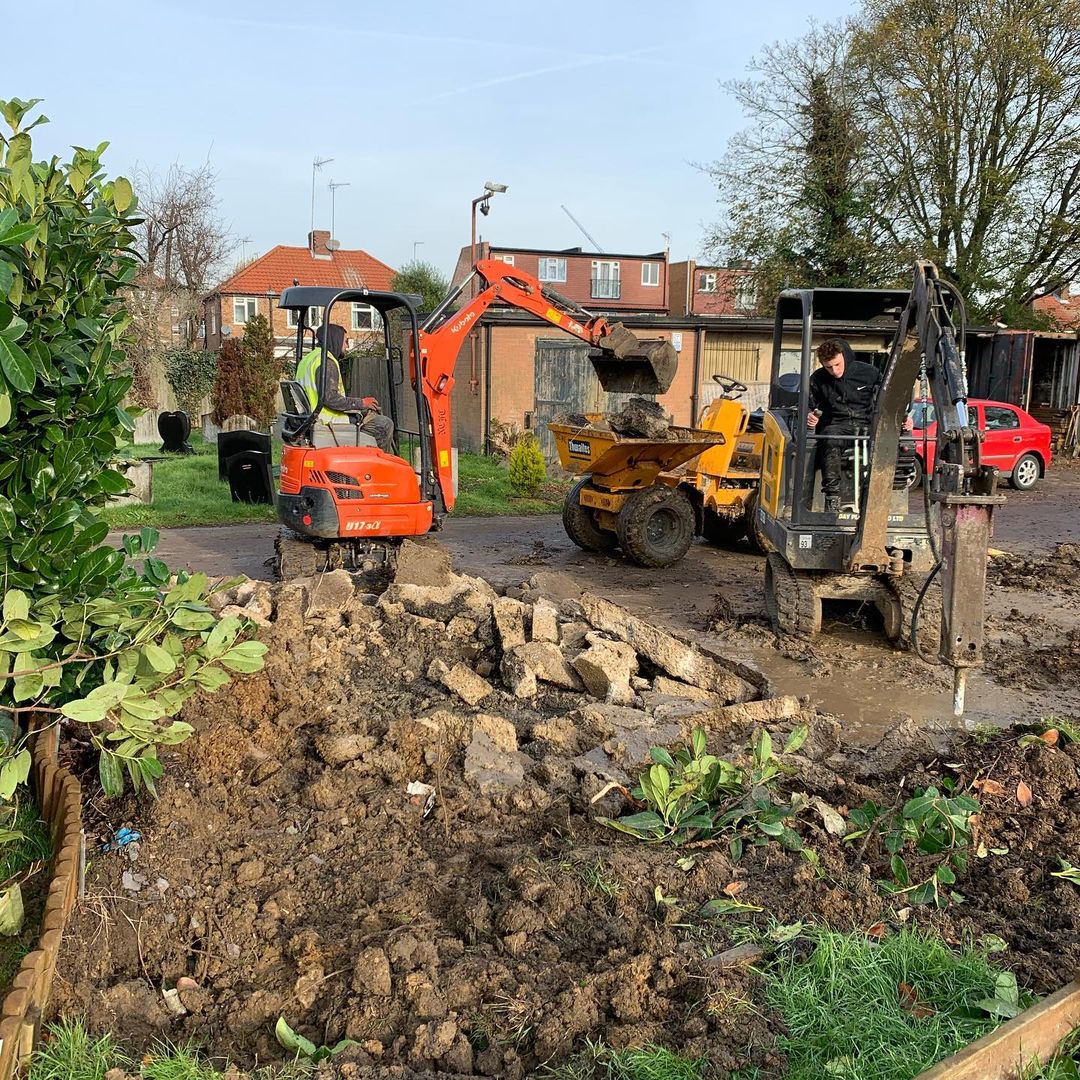
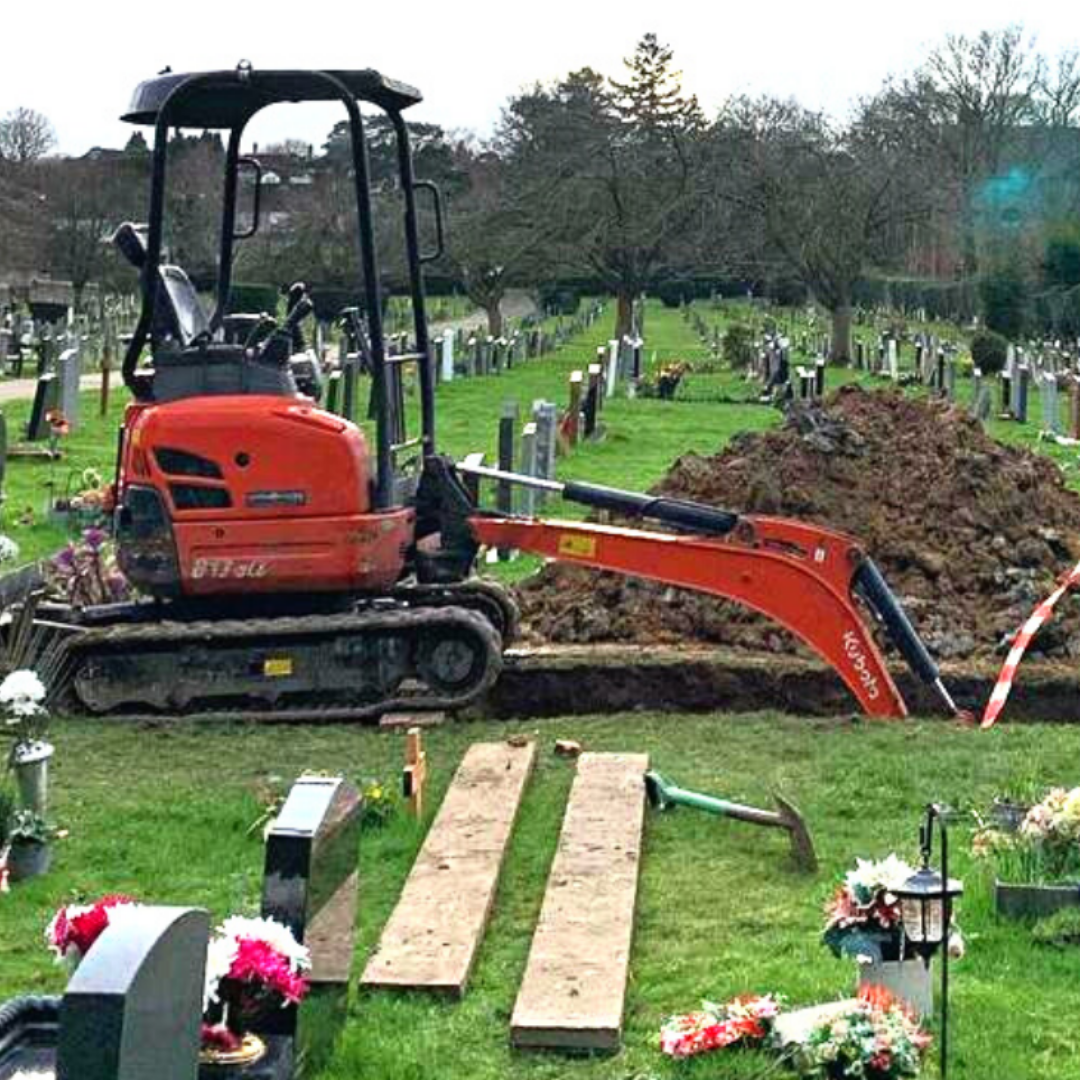
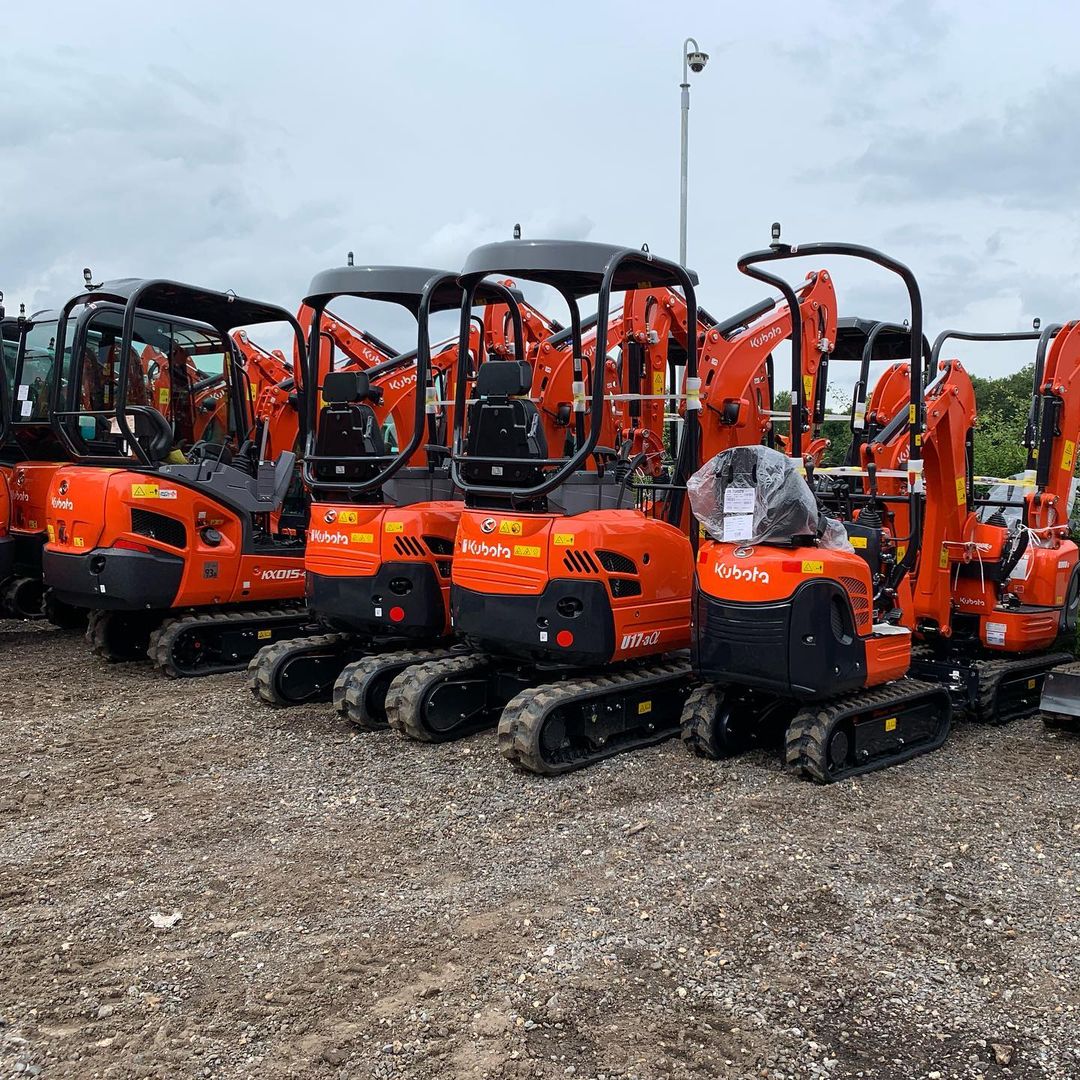
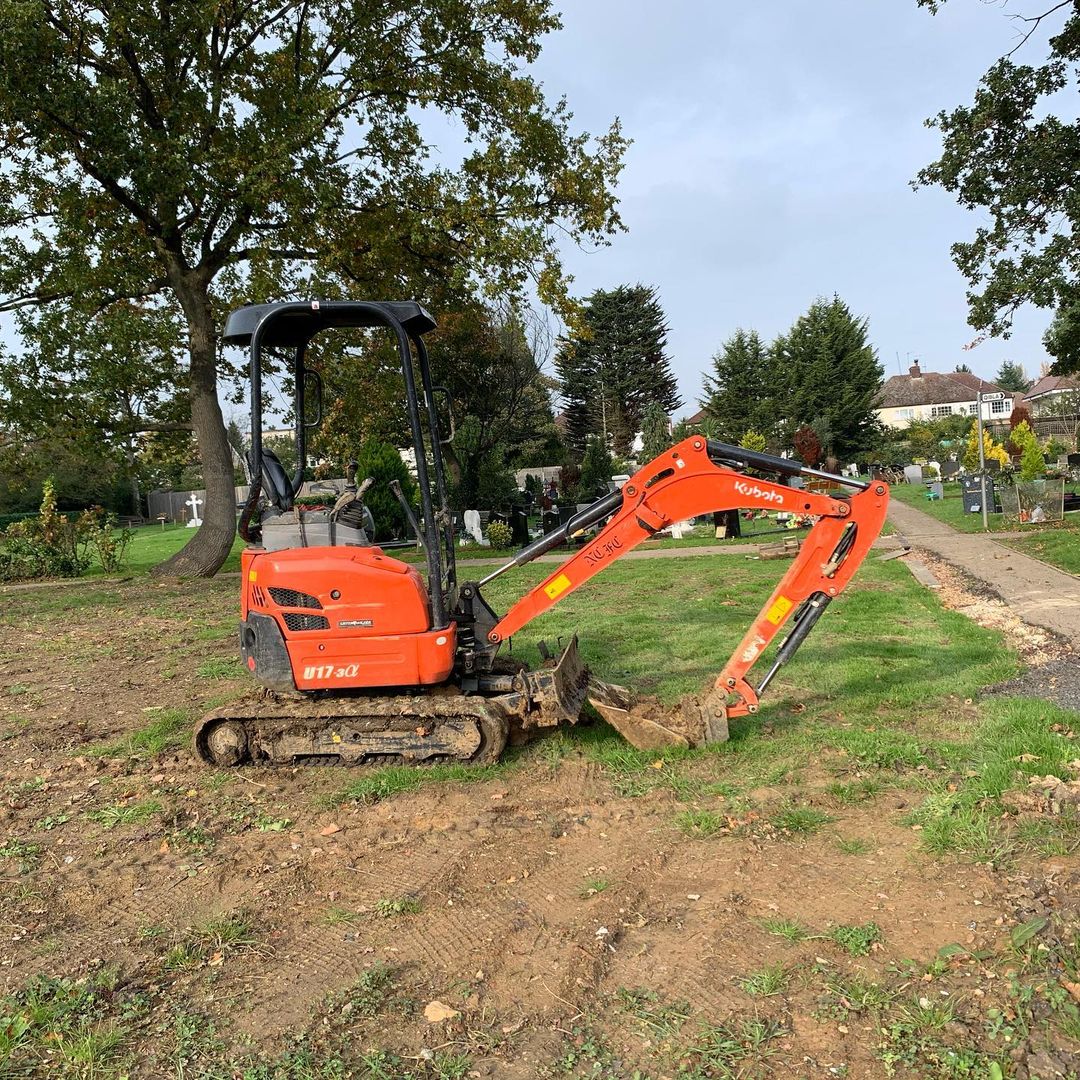

The UK's #1 independent team of funeral contractors.
Testimonials
Accreditations & Memberships
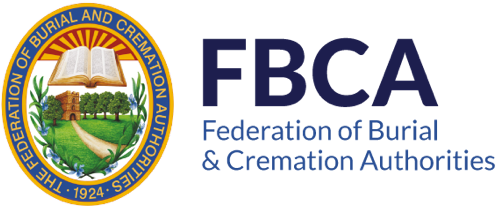




about US
Neil Curtis & Sons Funeral Contractors Limited (NCFC) is one of the UK's largest privately-owned, independent and professional grave digging and exhumation organisations with over 40 years in the business.
Neil Curtis and Sons Funeral Contractors Limited. A company registered in England with company number: 5355511
Registered office: No5 Oxford House, Oxford Road, Wokingham, Berkshire, RG41 2YE
Correspondence address: 351 Barkham Road, Wokingham, Berkshire, RG41 4DJ


